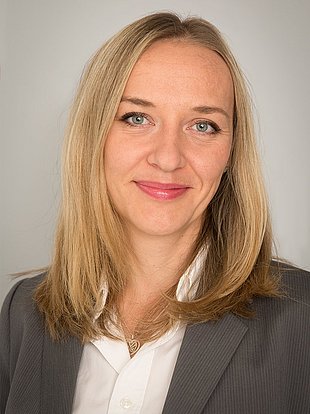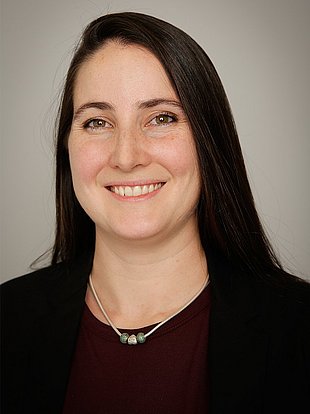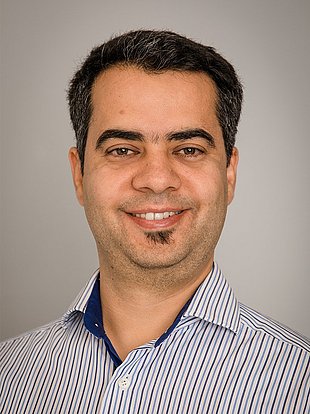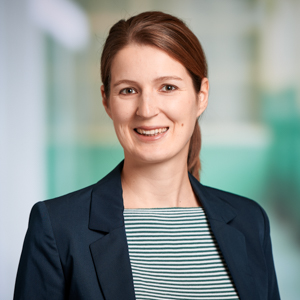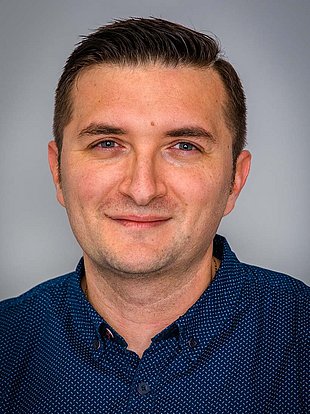About This Course
One of the key trends in education is adaptive learning. This data-driven approach to teaching zooms in on the individual students and their personal needs providing adapted learning pathways, content and instruction.
A 5-week course introducing personalised and adaptive technology-based learning. The course aims primarily to reach instructional designers, teachers, trainers, tutors, project managers and researchers who want to build, enhance and/or improve technology-based adaptive courses.
The mechanisms and components of adaptive learning systems as well as didactical aspects of adaptive instructional design will be explained throughout the course. We will also touch on data related issues, such as learning analytics and measuring learning. The course will conclude with a look at the challenges of implementing adaptive learning scenarios and possible future implications.
Course Staff
Prof. Per Bergamin
Per Bergamin is Professor for Didactics in Distance Education and E-Learning at the Swiss Distance University of Applied Sciences (FFHS). Since 2006 he acts as the Director of the Institute for Research in Open-, Distance- and eLearning (IFeL) and from 2016 on he holds also the UNESCO Chair on personalised and adaptive Distance Education. In May 2020 he is also appointed as extraordinary professor at the Faculty of Education of Northwest University (NWU, ZA). His research activities focus on self-regulated and technology-based personalized and adaptive learning. Central aspects are learning analytics, instructional design, usability and application implementation. As a researcher he cooperates with or leads different national and international projects and contributes to different Swiss advisory boards for E-Learning development. As a teacher he covers the topics of Educational Psychology and E-Didactics. Furthermore he was founder and president of the Executive Board of a Company for E-Business and BI as well as Learning Applications, which he sold in 2016.
Victoria Mirata
Victoria Mirata is a researcher in the field of personalised and adaptive learning at the Institute for Research in Open-, Distance- and eLearning (IFeL) and the UNESCO Chair on Personalised and Adaptive Distance Education. Her research interests include e-learning innovations, technology-enhanced learning, development and implementation of personalised and adaptive learning in online environments, MOOCs. The methodology draws on qualitative and mixed-methods approaches, Delphi studies.
Dr. Stéphanie McGarrity
Stephanie has a PhD in Neurobiology from Nottingham University. She is currently working as a Supervisor Quality control at Lonza, a pharmaceutical manufacturer. Her main points of interest are communication and organisation. Always looking for ways to improve processes to guarantee continuous quality at an excellence standard.
Stephanie is interested in topics of equality, women’s and men’s rights and opportunities, and family (traditional and non-traditional), both within the work environment as well as outside of work.
Dr. Tansu Pancar
Tansu Pancar is a researcher in the institute for Research in Open-, Distance- and eLearning (IFeL) at the Swiss Distance University of Applied Sciences (FFHS), and of the UNESCO Chair on Personalised and Adaptive Distance Education. His research interests include technology-enhanced learning, development and implementation of personalized and adaptive learning environments. He is also working on developing course content for adaptive and non-adaptive courses.
Dr. Ivan Moser
Ivan Moser is a researcher at the Institute for Research in Open-, Distance- and eLearning (IFeL) of the Distance University of Applied Sciences (FFHS). His research interests include e-learning innovations and technology-enhanced learning with a focus on virtual reality. He has contributed to various data-driven projects in both academia and the industry. Currently, he also teaches statistics and research methods in blended-learning courses at FFHS.
Franziska Hirt
Franziska Hirt is a digital learning expert at Zurich University of Applied Sciences (ZHAW). Previously she worked as a researcher at the Institute for Research in Open-, Distance- and eLearning (IFeL) and the UNESCO Chair on Personalised and Adaptive Distance Education. Her research interests include instructional design, adaptive and personalized learning, learning analytics and emotions.
Dr. Egon Werlen
Egon Werlen is the head of the research field “Emotion, Reading and Learning” in the institute for Research in Open-, Distance- and eLearning (IFeL) at the Distance University of Applied Sciences (FFHS), which also holds the UNESCO Chair on Personalised and Adaptive Distance Education. His research interests include e-learning innovations and technology-enhanced learning with a focus on emotion analytics, i.e. measurement of emotions during learning, and in students’ texts with emotional text analysis. Further topics in his research are personalised and adaptive learning, self-regulated learning, and usability of learning applications. He teaches at the Distance University of Applied Sciences Methods and Statistics, Human Computer Interaction, Psychological Aspects of Learning with Media, and Health Psychology.
Dr. Ioan-Sorin Comsa
Ioan-Sorin Comsa received the Ph.D. degree from the Institute for Research in Applicable Computing, University of Bedfordshire, U.K., in June 2015. He is a Research Assistant with the Swiss Distance University of Applied Sciences (FFHS). He was also involved as a Ph.D. Researcher with the Institute of Complex Systems, University of Applied Sciences of Western Switzerland, Switzerland. In 2015, he worked as a Research Engineer with CEA-LETI, Grenoble, France. In 2017, he was a Research Assistant with Brunel University London. His research interests include intelligent radio resource and QoS management, reinforcement learning, data mining, distributed and parallel computing, adaptive multimedia/mulsemedia delivery, and eLearning.
Dr. Christof Imhof
Dr. Christof Imhof is a researcher at the Institute for Research in Open, Distance, and e-Learning at the Swiss Distance University of Applied Sciences (FFHS). He received his PhD from the University of Bern in 2022. His research focus lies on emotions in e-reading and e-learning. Additional research interests include eye-tracking and procrastination. At the FFHS, he teaches Human Computer Interaction.



